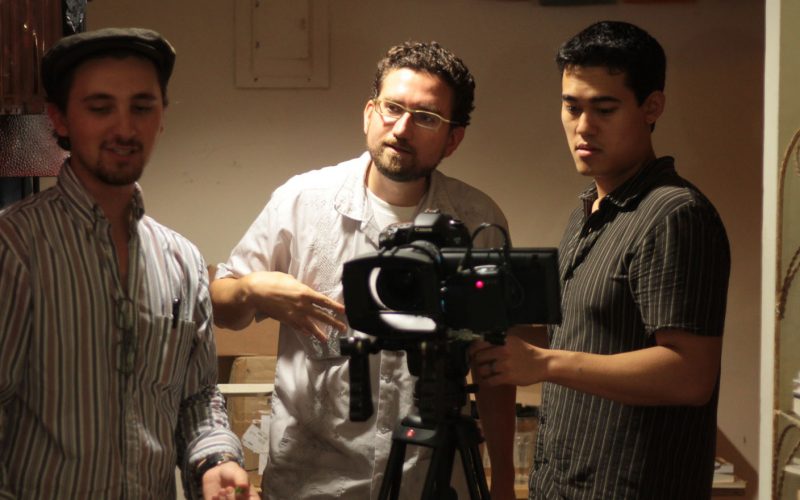
Courtesy Photo
Russell Sharman has taught anthropology, written books, written for film, made films and is now lecturing on film in the department of communication at the University of Arkansas. On Tuesday, he’ll spend the day mentoring high school filmmakers as part of the Fayetteville Film Festival.
Screenwriter believes anyone can, many should
BECCA MARTIN-BROWN
NWA Democrat-Gazette
“Don’t wait around for permission.”
“Don’t be afraid to make your own stuff.”
“Don’t wait for somebody to tell you you’re good enough.”
Russell Sharman believes anyone can be a filmmaker — maybe not a great filmmaker, but a filmmaker nonetheless.
“The first few things you make are going to be bad,” he says. “Very few people come out of the gates who are geniuses. But if you give up, you’re selling yourself short, interrupting the process. You still need to be gifted. And a film shot on a $50,000 camera will look a lot better than one on an Iphone. But for the most part, the general ticket-buying audience can’t tell the difference.
“Hollywood has zeroed in on movies with huge budgets and a lot of effects and not very much story. So there is a niche out there for storytellers — it’s just a matter of finding it.”
Telling those stories is the common denominator across Sharman’s wildly varied career. He entered college planning to be a filmmaker, ended up getting a Ph.D. in cultural anthropology from Oxford University, has taught anthropology, written books, written for film, made films and is now lecturing on film in the department of communication at the University of Arkansas. On Tuesday, he’ll spend the day mentoring high school filmmakers as part of the Fayetteville Film Festival.
“I’ve had a film in the festival pretty much every year” for the last four or five years, Sharman says, and “last year Morgan [Hicks] asked me if I’d be interested in being more involved. You could tell [FFF] had turned a real corner as far as quality of films and the branding change [from the Offshoot Film Festival]. I said yes.
“One of the things Morgan wanted me to focus on was the education component — not just for kids but different kinds of panels and workshops that would appeal to anyone,” he goes on. Tuesday’s student day will include a mini-film festival of works by high school filmmakers, along with workshops like one by Dan Robinson on composing music for a film and Sharman’s on screenwriting. It’s an interactive effort, he says of his presentation: The students help create a film’s plot, deciding protagonist, antagonist, obstacles and so forth. “It’s what every screenwriter goes through,” he says.
Among the popular questions when Sharman talks about filmmaking is how one gets to be a screenwriter. He says the answer isn’t easy.
“It’s a funny thing about Hollywood: You can work for years for major studios, get flown out first-class, get car service, get paid well, but they have so many movies they’re spending money to develop but aren’t making,” he explains. What really got his foot in the proverbial door, he adds, is knowing someone who had an agent and needed a scriptwriter — and that friend got an agent because he had made a film.
“Which goes back to my first answer: Don’t wait around for permission,” he says.




